The 20 Best Canadian Dividend Stocks for U.S. Investors
These 20 Canadian Dividend Aristocrats trade on either the NYSE or Nasdaq, and have increased their dividends annually for at least seven years.

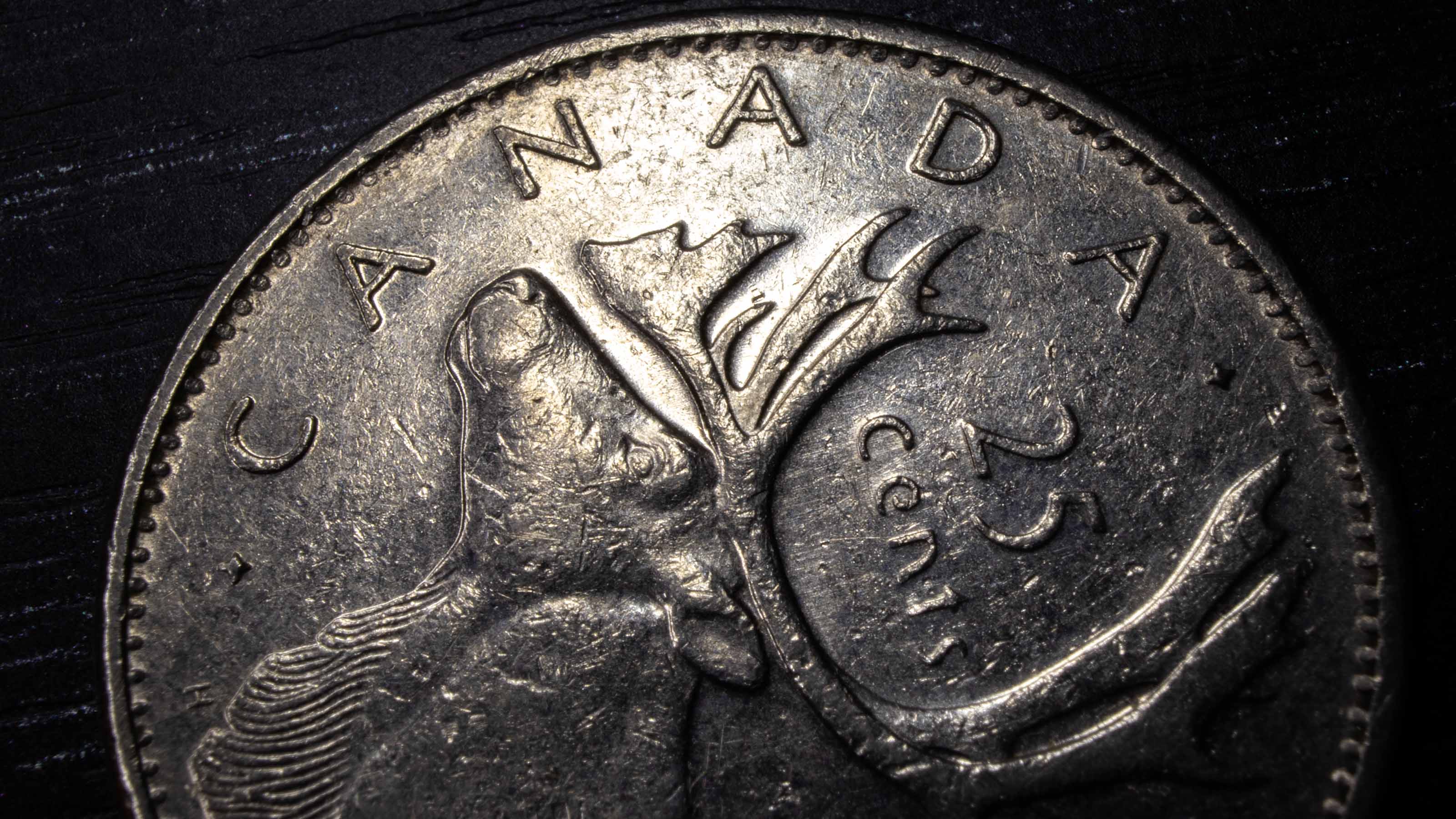
Profit and prosper with the best of Kiplinger's advice on investing, taxes, retirement, personal finance and much more. Delivered daily. Enter your email in the box and click Sign Me Up.
You are now subscribed
Your newsletter sign-up was successful
Want to add more newsletters?

Delivered daily
Kiplinger Today
Profit and prosper with the best of Kiplinger's advice on investing, taxes, retirement, personal finance and much more delivered daily. Smart money moves start here.

Sent five days a week
Kiplinger A Step Ahead
Get practical help to make better financial decisions in your everyday life, from spending to savings on top deals.

Delivered daily
Kiplinger Closing Bell
Get today's biggest financial and investing headlines delivered to your inbox every day the U.S. stock market is open.

Sent twice a week
Kiplinger Adviser Intel
Financial pros across the country share best practices and fresh tactics to preserve and grow your wealth.

Delivered weekly
Kiplinger Tax Tips
Trim your federal and state tax bills with practical tax-planning and tax-cutting strategies.

Sent twice a week
Kiplinger Retirement Tips
Your twice-a-week guide to planning and enjoying a financially secure and richly rewarding retirement

Sent bimonthly.
Kiplinger Adviser Angle
Insights for advisers, wealth managers and other financial professionals.

Sent twice a week
Kiplinger Investing Weekly
Your twice-a-week roundup of promising stocks, funds, companies and industries you should consider, ones you should avoid, and why.

Sent weekly for six weeks
Kiplinger Invest for Retirement
Your step-by-step six-part series on how to invest for retirement, from devising a successful strategy to exactly which investments to choose.
The U.S. is home to literally thousands of dividend payers, which would seem to eliminate the need to look elsewhere for income. But there's a convincing case to be made for at least a handful of Canadian dividend stocks.
American investors interested in generating a combination of income and capital appreciation often look to the Dividend Aristocrats – a select group of 65 S&P 500 stocks that have improved their annual payouts for at least 25 consecutive years.
However, a little international diversification can help provide ballast to most portfolios. And if you like the idea of purchasing payout-raising stocks, you can do that across a number of regions – including our neighbors up north.
The Canadian Dividend Aristocrats currently total 94 stocks at present. To qualify for inclusion, these Canadian dividend stocks must be listed on the Toronto Stock Exchange, be a member of the S&P Canada BMI (Broad Market Index), must increase their annual payout for five consecutive years (they can maintain the same dividend for two consecutive years) and have a float-adjusted market cap of at least C$300 million.
While 94 stocks qualify for the index, we've thinned the herd somewhat for U.S. investors. Here, then, are 20 of the top Canadian dividend stocks to buy that are listed on either the New York Stock Exchange or Nasdaq.
Data is as of May 17. Dividend yields are calculated by annualizing the most recent quarterly payout and dividing by the share price. Analysts' opinions provided by S&P Global Market Intelligence. Figures are in U.S. dollars unless otherwise indicated. Stocks listed in reverse order of the length of their dividend-growth streaks.

FirstService
- Market value: $5.6 billion
- Dividend yield: 0.6%
- Consecutive annual dividend increases: 7
- Analysts' opinion: 17 Strong Buy, 8 Buy, 11 Hold, 0 Sell, 0 Strong Sell
FirstService (FSV, $125.74) is a leading North American provider of essential property services. It has more than 24,000 employees across North America and generated $3.25 billion in sales in 2021, 17.2% higher than a year earlier. It grows through a combination of organic sales and acquisitions. In 2021, it made 18 strategic acquisitions worth more than $160 million.
FSV provides these services through two operating segments: FirstService Residential, which manages more than 8,600 properties, representing 1.7 million residential units, and FirstService Brands, which provides residential and commercial property services through brands such as CertaPro Painters, Paul Davis, California Closets and more.
FirstService was founded in 1989 by Jay Hennick. In 2007, it reached $1 billion in systemwide sales. Since listing on the Nasdaq in June 2015, FSV has increased its dividend every year.
In February, the company announced an 11% increase in its quarterly dividend to 20.25 cents per share. FSV has raised its annual dividend by at least 10% for seven consecutive years, making it one of the best Canadian dividend stocks for income-seeking investors.

Open Text
- Market value: $10.2 billion
- Dividend yield: 2.4%
- Consecutive annual dividend increases: 8
- Analysts' opinion: 3 Strong Buy, 5 Buy, 1 Hold, 0 Sell, 0 Strong Sell
Open Text (OTEX, $38.00) is a cloud-based company that provides businesses with the software and solutions to help their customers compete. It is a leader in the $92 billion information management industry.
The cloud stock has shown tremendous growth over the past decade. Open Text has grown its annual recurring revenue (ARR) by 318% since 2012, from $657 million to $2.7 billion. And between 2013 and 2021, the company grew its cloud revenue by 682%, from $180 million to $1.41 billion.
What's more, from 2015 through 2021, OTEX expanded its free cash flow – the money left over after a company has covered the capital expenditures needed to grow its business – by 82%, from $445 million to $812 million.
Open Text allocates approximately 33% of its free cash flow to dividends and share repurchases. It has increased its annual dividend by 16% compounded annually over the past seven years. Between dividends and share repurchases, OTEX has returned roughly $1.5 billion to shareholders since fiscal 2013.
With its March 2022 payment, Open Text now pays a quarterly dividend of 22.09 cents per share.

Manulife Financial
- Market value: $34.6 billion
- Dividend yield: 5.8%
- Consecutive annual dividend increases: 8
- Analysts' opinion: 3 Strong Buy, 1 Buy, 10 Hold, 0 Sell, 1 Strong Sell
Manulife Financial (MFC, $17.99) is a Canadian financial services company that provides wealth management and insurance products, as well as advisory services, in Canada, the U.S. and Asia. A little-known fact: Canada's first prime minister, John A. MacDonald, was also Manulife's first president in 1887.
All federally regulated financial institutions in Canada were forced by the Office of the Superintendent of Financial Institutions (OSFI) to halt dividend increases on March 13, 2020. In addition, share repurchases were suspended until further notice. Manulife managed to get its 2020 increase paid out before the announcement. On Nov. 4, 2021, OSFI ended the order.
On Nov. 5, 2021, Manulife announced a special dividend of 5 Canadian cents per share. When combined with MFC's regular quarterly dividend of 28 Canadian cents per share, this represented an 18% increase to its payout. It also marked the eighth consecutive year the firm has hiked its dividends. MFC also plans to buy back 39 million of its shares over the next year under a normal course issuer bid, eliminating roughly 2% of its shares outstanding.
In 2021, Manulife had core earnings of C$6.5 billion, 26% higher than in 2020. It finished the year with C$855.9 million in assets under management and administration thanks to solid net inflows for its Global Wealth and Asset Management segment.

Brookfield Asset Management
- Market value: $80.3 billion
- Dividend yield: 1.2%
- Consecutive annual dividend increases: 11
- Analysts' opinion: 3 Strong Buy, 7 Buy, 2 Hold, 0 Sell, 0 Strong Sell
Brookfield Asset Management (BAM, $48.92) is one of the world's largest alternative asset managers, with combined assets of $690 billion and $8.5 billion in annual fee-related earnings and carried interest.
In 2021, Brookfield raised $71 billion in capital. This included $15 billion for its Global Transition Fund that will invest in clean energy, while also helping industries like steel and cement reduce their carbon footprints. The company's Asia business is its fastest-growing region with close to $100 billion in total assets, including more than $30 billion in Australia.
A $1 million investment in Brookfield 30 years ago is worth approximately $111 million today. That's a compound annual growth rate of 17%, 600 basis points (a basis point is one one-hundredth of a percentage point) higher than the S&P 500.
This Canadian dividend stock most recently raised its quarterly payout by 1 cent, to 14 cents per share, starting with the March 2022 distribution.

Waste Connections
- Market value: $32.8 billion
- Dividend yield: 0.7%
- Consecutive annual dividend increases: 11
- Analysts' opinion: 10 Strong Buy, 4 Buy, 2 Hold, 1 Sell, 1 Strong Sell
Waste Connections (WCN, $127.37) is the third-largest solid waste company in North America. It has operations in 43 states and six Canadian provinces. Approximately 86% of its annual revenue is generated in the U.S.
Waste Connections grew its adjusted free cash flow in 2021 to $1.01 billion, 19.9% higher than a year earlier. In 2022, WCN expects this to grow to at least $1.15 billion, or 16.7% of its revenue estimate.
In 2021, Waste Connections' revenue grew by 12.9% to $6.15 billion. This surge in revenue came amid a steady stream of acquisitions, with purchases made over the 12-month period valued at $389 million. These acquisitions added $400 million in annualized revenue for the full fiscal year. WCN's adjusted net income also spiked, rising 22.3% to $3.23 per share.
In October 2021, Waste Connections increased its quarterly dividend by 12% to 23 cents per share. It paid out $220.2 million for dividends and $339.0 million for share repurchases in 2021.
As far as Canadian dividend stocks go, this one has been fruitful for investors over the years. In the past decade, the industrial stock has generated a total shareholder return of 580% – two times that of the S&P 500.

Algonquin Power & Utilities
- Market value: $9.7 billion
- Dividend yield: 5.1%
- Consecutive annual dividend increases: 12
- Analysts' opinion: 1 Strong Buy, 5 Buy, 6 Hold, 1 Sell, 0 Strong Sell
Algonquin Power & Utilities (AQN, $14.38) is a Canadian utility stock with more than $16 billion in power generation assets in the U.S. and Canada. It has more than 1 million customer connections in three provinces, 13 states, Bermuda and Chile. The company also has more than 4 gigawatts (GW) of renewable power generation operating or under construction.
AQN is currently in the first year of a five-year $12.4 billion capital plan that will see it invest roughly 70% of those funds in its Regulated Services Group and the remaining 30% in its Renewable Energy Group. It intends to achieve net-zero greenhouse gas emissions by 2050.
Algonquin is one of a large number of Canadian dividend stocks with at least a decade of consecutive hikes under its belt. AQN last raised its quarterly dividend by 6% with its July 2022 payment of 18.08 cents per share.
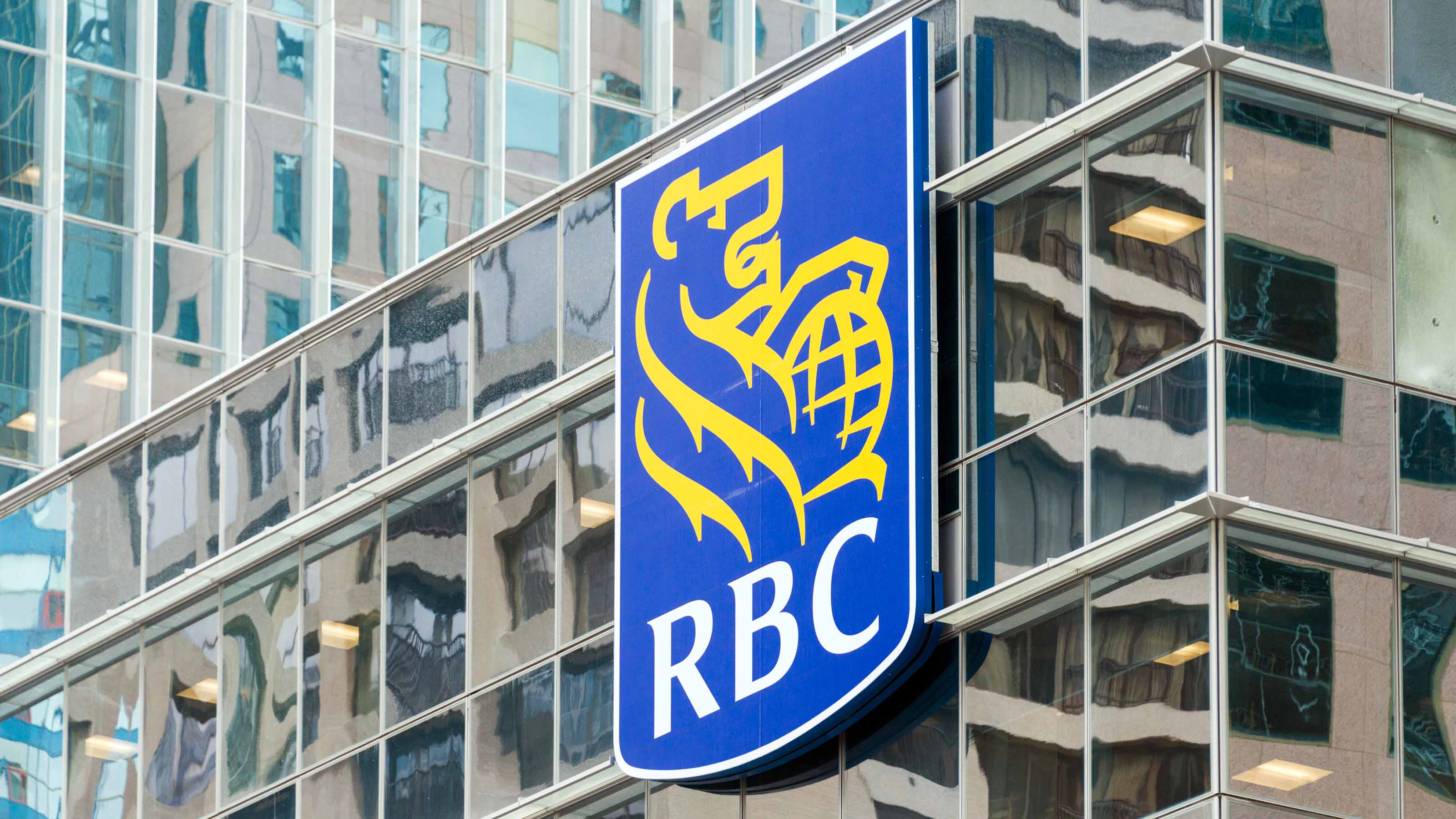
Royal Bank of Canada
- Market value: $140.6 billion
- Dividend yield: 3.8%
- Consecutive annual dividend increases: 12
- Analysts' opinion: 4 Strong Buy, 5 Buy, 4 Hold, 1 Sell, 1 Strong Sell
Royal Bank of Canada (RY, $99.28) is one of Canada's biggest banks and among the world's largest by market capitalization. It has over 17 million customers; operates in 29 countries, including the U.S. and Canada; and has more than 86,000 full- and part-time employees.
At the end of March, Royal Bank announced it would acquire Brewin Dolphin Holdings for 1.6 billion British pounds. Brewin Dolphin is one of the U.K.'s largest providers of discretionary wealth management. At the end of 2021, it had 59 billion British pounds in assets under management.
This should bode well for Royal Bank's already impressive fundamentals. In 2021, RY's revenues increased 5.3% to C$49.69 billion. Its net income jumped 40.3% to C$16.05 billion. The financial stock's personal and commercial banking unit is its largest, accounting for 38% of its overall revenue and nearly half of net income.
Over the past 10 years, the bank has increased its annual dividend by 8% compounded annually, which is high compared to most of the Canadian dividend stocks on this list. With the February 2022 payment, RY hiked its quarterly dividend by 11% to $1.20 a share.
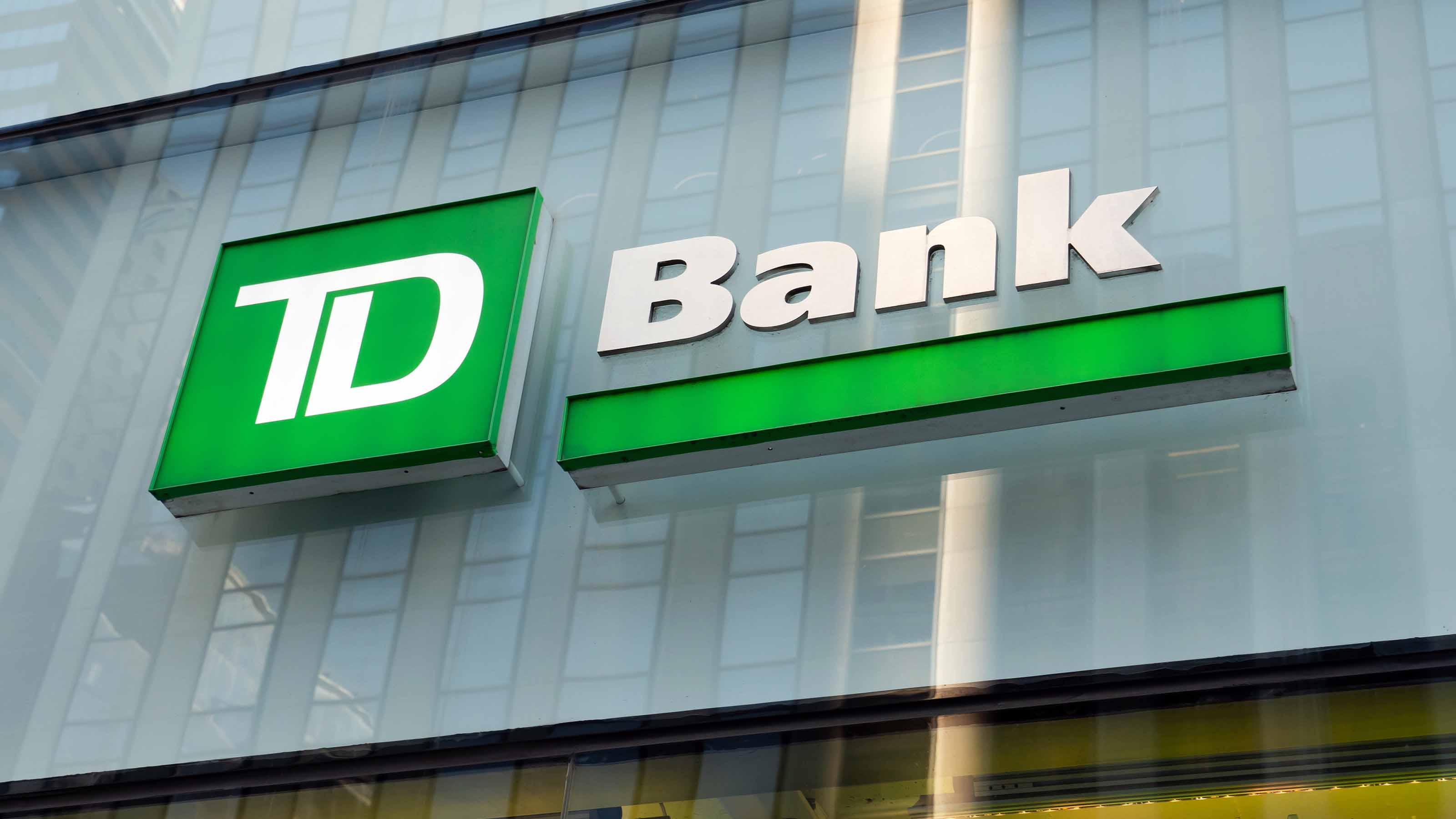
Toronto-Dominion Bank
- Market value: $132.9 billion
- Dividend yield: 3.8%
- Consecutive annual dividend increases: 12
- Analysts' opinion: 3 Strong Buy, 2 Buy, 9 Hold, 1 Sell, 0 Strong Sell
Toronto-Dominion Bank (TD, $73.27) is North America's fifth-largest bank by total assets and market cap. The bank has 1,152 branches in the U.S. and 1,062 in Canada.
TD announced fiscal first-quarter results in March. Its adjusted net income was C$3.8 billion, 13.4% higher than a year earlier. In terms of total assets and total deposits, Toronto-Dominion finished the quarter as the top-ranked bank in Canada and fifth in North America.
The company became the largest shareholder in Charles Schwab (SCHW) after the Texas-based financial services firm acquired TD Ameritrade in 2020. TD's 9.7% ownership stake delivered $200 million in first-quarter profits, 24% higher than a year earlier.
The bank's Canadian retail business generates 57% of its earnings; the U.S. business, including its Schwab stake, another 32%; and wholesale banking accounts for the rest.
TD is a steady Eddie as far as Canadian dividend stocks go, having increased its annual payout for more than a decade. In 1995, its annual dividend was 22 Canadian cents. Following its most recent hike in January – a 13% increase to its quarterly dividend – the bank now pays C$3.56 a share on an annualized basis.

Brookfield Infrastructure Partners
- Market value: $18.6 billion
- Distribution yield: 3.6%*
- Consecutive annual dividend increases: 13
- Analysts' opinion: 4 Strong Buy, 6 Buy, 2 Hold, 0 Sell, 1 Strong Sell
Brookfield Infrastructure Partners (BIP, $60.96), as the name implies, invests in infrastructure assets. The company owns utilities, transportation, energy and data assets worth more than $117 billion. And if the name sounds familiar, that's because it's a spinoff of its parent, Brookfield Asset Management, which still owns 27% of its shares.
BIP has been doing a bit of wheeling and dealing over the past year. It deployed more than $3 billion of its capital on growth initiatives in 2021. The biggest was the privatization of Canadian pipeline owner Inter Pipeline for $13 billion. It also made investments in the data and utility sectors.
In terms of divesting assets, BIP generated more than $2 billion in proceeds from four sales. Its after-tax internal rate of return (IRR) on these investments was 33% and four times the capital it invested.
Brookfield generates 44% of its funds from operations in North America, 20% from South America, and 18% from both Europe and Asia.
BIP announced in early February that it would increase its quarterly distribution by 6% to 54 cents per share, beginning with its March payment.
* Distributions are similar to dividends but are treated as tax-deferred returns of capital and require different paperwork come tax time.

Magna International
- Market value: $18.7 billion
- Dividend yield: 2.9%
- Consecutive annual dividend increases: 13
- Analysts' opinion: 8 Strong Buy, 8 Buy, 4 Hold, 1 Sell, 0 Strong Sell
Magna International (MGA, $63.26) is the world's fourth-largest automotive parts supplier with 343 manufacturing facilities located in 28 countries. Six of the company's major customers – BMW (BMWYY), Daimler, General Motors (GM), Stellantis (STLA), Ford (F) and Volkswagen (VWAGY) – account for 78% of its business.
The future looks bright for Magna. It's already booked 90% of its 2024 sales goal. Its three areas of focus in the future are electrification, attracting new customers – many of them manufacturing electric vehicles – and the furthering of its advanced driver assistance systems (ADAS) business.
In February, Magna announced full-year results that included sales of $36.2 billion, 11.0% higher than a year earlier. Adjusted EBIT (earnings before interest and taxes) of $2.06 billion was 23.2% higher than 2020.
At the same time it announced earnings, Magna also increased its quarterly dividend by 5% to 45 cents per share. It is the company's 13th consecutive annual payout hike. In addition to paying out $514 million in dividends last year, Magna repurchased $517 million worth of its shares.
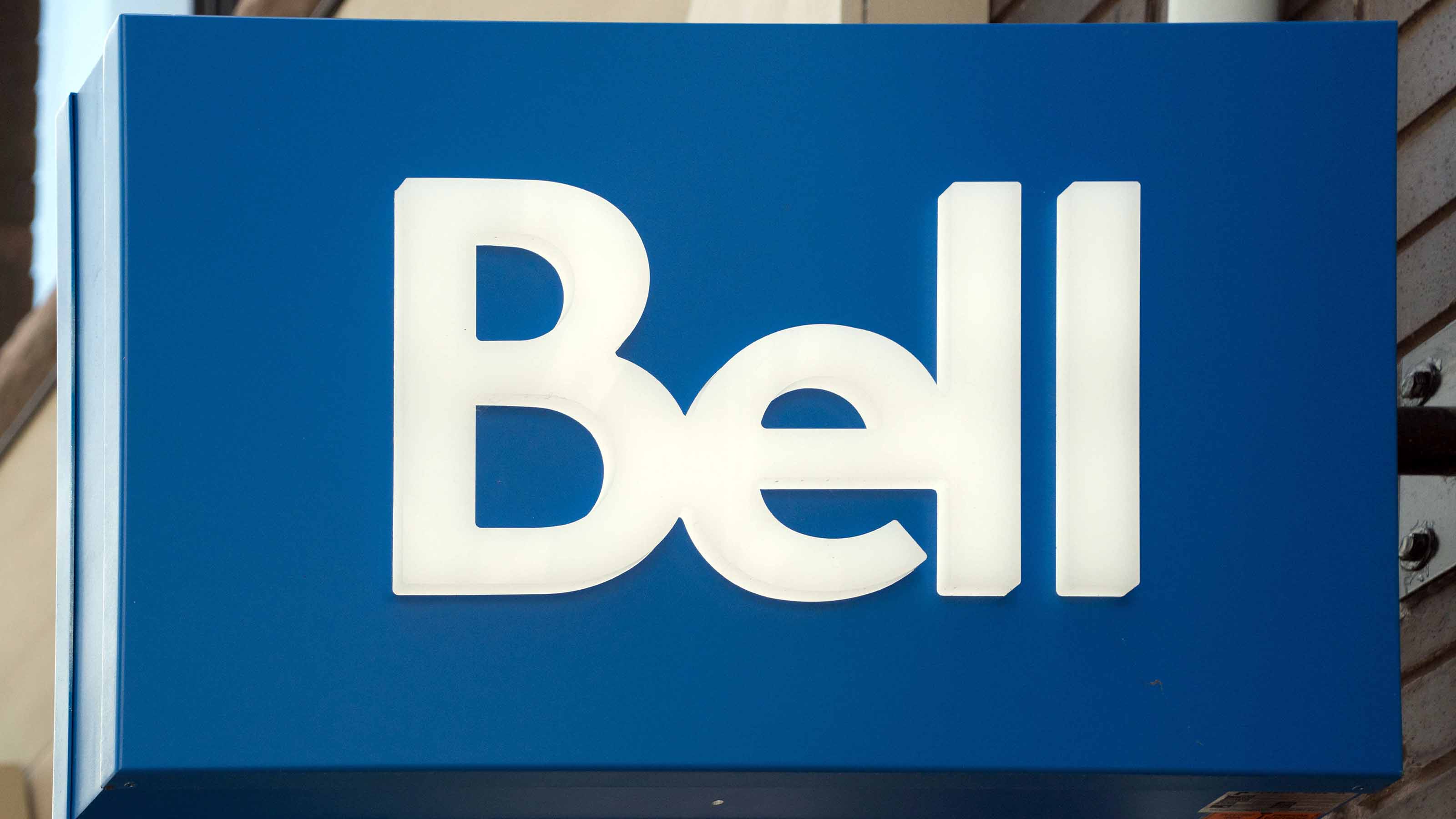
BCE
- Market value: $49.0 billion
- Dividend yield: 5.4%
- Consecutive annual dividend increases: 14
- Analysts' opinion: 2 Strong Buy, 3 Buy, 12 Hold, 0 Sell, 1 Strong Sell
BCE (BCE, $53.77) is Canada's largest communications company, with annual revenue of C$23.4 billion. It generates approximately 51% of its sales from wireline broadband and TV, 38% from wireless, and the remaining 11% from its media operations.
In 2021, the communication services firm added approximately 1.1 million new subscribers for its fiber and Wireless Home Internet (WHI) business. It also extended its mobile 5G coverage to more than 70% of Canadians.
The company plans to add fiber and wireless home internet to as many as 900,000 homes and businesses in 2022. This will bring its total footprint to more than 8.1 million homes and businesses across Canada, up 12.5% over 2021.
BCE has rightfully earned its spot among Canadian Dividend Aristocrats, having raised its annual dividend by 5% or more for 14 consecutive years. It usually targets a payout ratio within a range of 65% to 75% of free cash flow, which is manageable though a little higher than many other Canadian dividend stocks on this list.
The company announced in February that it would increase its quarterly payment by 5.1% to 92 Canadian cents per share from 87.5 Canadian cents per share previously.

Franco-Nevada
- Market value: $26.2 billion
- Dividend yield: 0.9%
- Consecutive annual dividend increases: 15
- Analysts' opinion: 5 Strong Buy, 4 Buy, 7 Hold, 0 Sell, 0 Strong Sell
Franco-Nevada (FNV, $137.02) is different from most mining companies in that it doesn't own any mines. Instead, it finances mine developments for other companies in return for a portion of future revenue. As a royalty play, the harder it is for mining companies to get traditional financing for a project, the better the opportunity for Franco-Nevada.
The company's portfolio consists of 405 assets. There are 112 of these assets that are producing revenue, 43 that are in advanced stages of development, and 250 exploration projects.
In recent years, this commodity stock has diversified into oil and gas revenue streams; oil and gas, along with iron ore, now account for 23% of its revenue. Franco-Nevada generates 56% of its revenue from Latin America, 35% from the U.S. and Canada, and 9% from the rest of the world.
In 2021, Franco-Nevada's revenues were $1.3 billion, 27% higher than a year earlier. It sold 728,237 gold equivalent ounces during the past year, 27% higher than 2020.
Since Franco-Nevada went public in 2007, it has paid out more than $1.7 billion in dividends and has increased its annual payout every year. It expects to pay out $245 million in dividends in 2022.
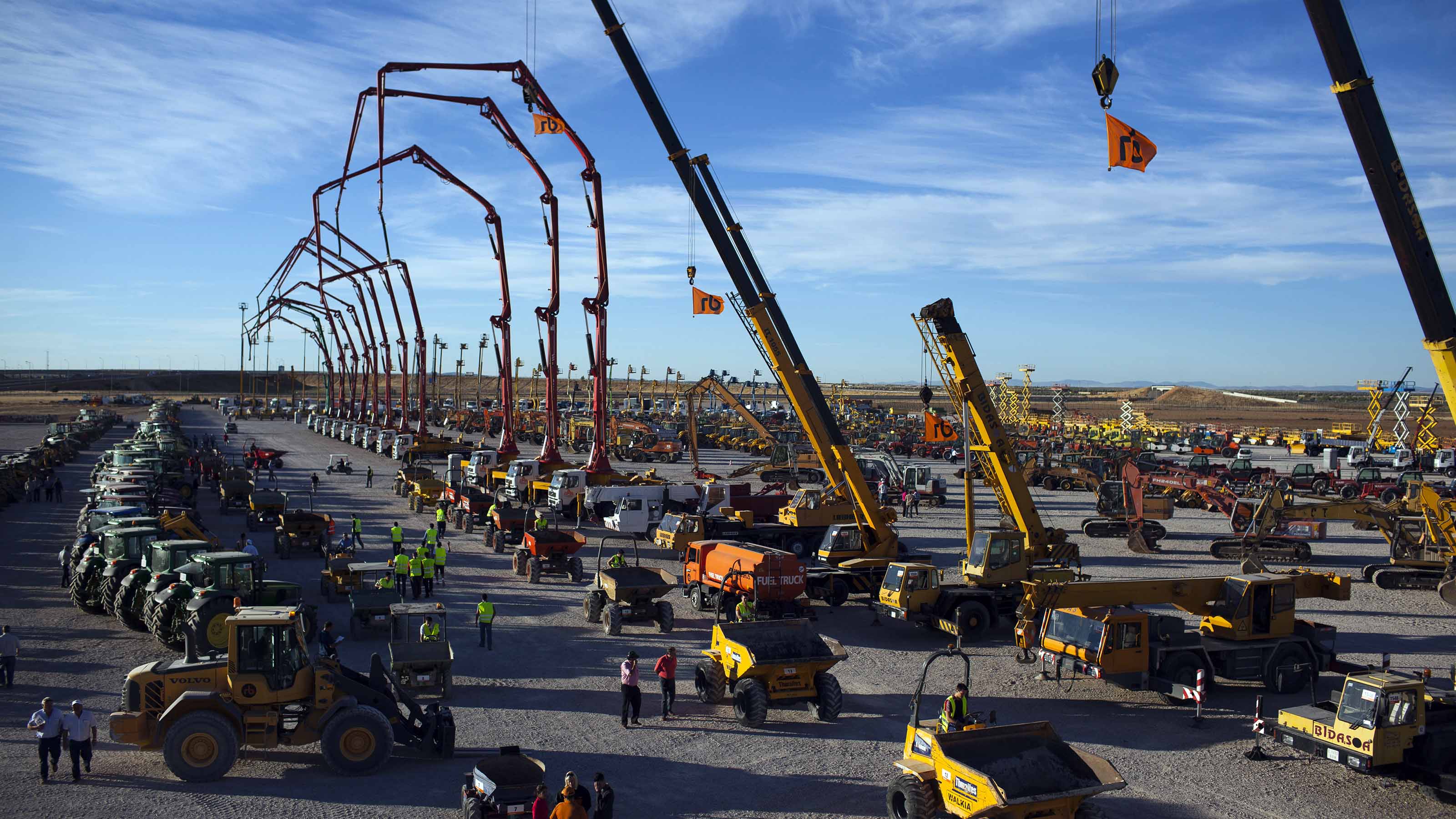
Ritchie Bros. Auctioneers
- Market value: $6.8 billion
- Dividend yield: 1.6%
- Consecutive annual dividend increases: 18
- Analysts' opinion: 1 Strong Buy, 1 Buy, 8 Hold, 0 Sell, 1 Strong Sell
Ritchie Bros. Auctioneers (RBA, $61.66) helps individuals and businesses sell heavy equipment via more than 40 permanent auction sites in approximately 12 countries and through its online marketplaces – including IronPlanet, Marketplace-E and GovPlanet – that bring buyers and sellers together.
In August 2021, Ritchie Bros. acquired Euro Auctions for $1.08 billion. Euro Auctions is a leading European plant and machinery auction house. The company paid approximately 15.3 times its 2021 EBITDA (earnings before interest, taxes, depreciation and amortization).
In 2020, Ritchie Bros. sold $5.4 billion of other people's goods, getting a piece of the action on every transaction. By 2021, the company's gross transaction value (GTV) had increased to $5.5 billion. Revenues on those sales increased 3% year-over-year to $1.4 billion. Its service revenues accounted for 65% of its revenue, with inventory sales accounting for the rest.
RBA secured its spot on this year's list of the best Canadian dividend stocks when it increased its quarterly payment by 14% to 25 cents per share for the September 2021 dividend. It paid out $104 million in dividends in 2021.

Telus
- Market value: $34.1 billion
- Dividend yield: 4.3%
- Consecutive annual dividend increases: 18
- Analysts' opinion: 4 Strong Buy, 6 Buy, 7 Hold, 0 Sell, 0 Strong Sell
Telus (TU, $24.77) is a Canadian telecom company with C$16.8 billion in annual revenue. In 2021, Telus added 705,000 new customers, finishing the year with nearly 17 million subscribers, including 9.3 million from wireless.
The company's 2021 targets included 8%-10% growth in sales, C$750 million in free cash flow, and capital expenditures of C$3.5 billion. TU ended up growing sales by 12% for the full year, had C$777 million in free cash flow and C$3.5 billion in capital expenditures.
Since 2004, this Canadian Dividend Aristocrat, which is also one of the best retirement stocks for 2022, has returned more than C$21 billion to shareholders – the equivalent of more than C$15 per share. In 2021, it increased its annual dividend for the year to C$1.27 per share, 7.3% higher than a year earlier. It paid out C$1.7 billion in dividends to shareholders in the past year.
Telus announced in 2019 that it planned to increase the dividend by 7% to 10% annually through the end of 2022. It targets an annual payout of 60% to 75% of its annual free cash flow. The company also split its stock 2-for-1 in March 2020.

Canadian Natural Resources
- Market value: $72.8 billion
- Dividend yield: 3.9%
- Consecutive annual dividend increases: 22
- Analysts' opinion: 7 Strong Buy, 8 Buy, 7 Hold, 0 Sell, 0 Strong Sell
Canadian Natural Resources (CNQ, $63.04) is one of the world's top independent energy producers, with natural gas, heavy crude oil and oil sands operations in North America and offshore operations in Africa and the U.K. In 2021, it produced a record 1.24 billion oil-equivalent barrels daily, 6% higher than a year earlier.
Amid a solid year for energy stocks, CNQ also generated adjusted fund flows of C$13.7 billion in 2021. Excluding one-time items, it had an annual free cash flow of C$8.0 billion. Due to its strong free cash flow, the company raised its quarterly dividend twice in 2021. As a result, its annual dividend increased 38% in 2021 to C$2.35 per share. That marks the 22nd consecutive payout hike for CNQ – one of the best among Canadian dividend stocks.
The company altered its free cash flow allocation policy in July 2021. When net debt falls below C$15 billion, it will pay out 50% of its free cash flow to share repurchases and 50% to the balance sheet. In 2021, it paid out C$2.2 billion in dividends and repurchased C$1.6 billion of its shares.

TC Energy
- Market value: $56.2 billion
- Dividend yield: 4.9%
- Consecutive annual dividend increases: 22
- Analysts' opinion: 1 Strong Buy, 6 Buy, 11 Hold, 2 Sell, 2 Strong Sell
TC Energy (TRP, $57.17) is a leading North American energy infrastructure company that began life in 1951 as TransCanada Pipeline. The company has operated under the TC Energy moniker since May 2019. It made the change to reflect that it has operations across North America – the U.S. and Mexico accounted for 52% and 5% of overall revenue in 2021, respectively – and not just in Canada.
The Calgary-based company owns one of the largest natural gas pipeline networks (58,000 miles of pipeline) in North America, capable of moving 25% of the continent's demand for natural gas. It is also one of the largest natural gas storage operators, with more than 653 billion cubic feet of capacity.
In addition to its natural gas pipelines and storage, it also transports crude oil through its Keystone Pipeline System. Since it began transporting crude oil in 2010, it has transported more than 3 billion barrels. It also owns seven power generation facilities that produce 4,300 megawatts of electricity, 75% of which is emission-free nuclear energy.
TRP has one of the longest payout-growth streaks among Canadian dividend stocks. Since 2000, the company has increased its annual dividend by 7%, compounded annually to its estimated C$3.60 per share in 2022.
TC Energy's most recent dividend hike came in February, when the company hiked its quarterly payout by 3.4% to 90 Canadian cents per share. TRP intends to grow the dividend by 3% to 5% annually for the foreseeable future.

Canadian National Railway
- Market value: $79.6 billion
- Dividend yield: 2.0%
- Consecutive annual dividend increases: 26
- Analysts' opinion: 7 Strong Buy, 3 Buy, 19 Hold, 2 Sell, 0 Strong Sell
Canadian National Railway (CNI, $115.17) is North America's second-largest publicly traded railway, with a network of almost 20,000 route miles transporting more than 300 million tons of natural resources, manufactured products and finished goods across North America each year.
In 2021, CN recorded annual revenues of C$14.5 billion, adjusted net income of C$4.2 billion and free cash flow of C$3.3 billion.
Some of that cash went to shareholders. O5n Jan. 25, the company said it would increase its quarterly dividend by 19% to 73.25 Canadian cents per share. The company has increased its dividend every year since it went public in 1995.
In 2022, Canadian National Railway intends to repurchase as many as 42 million of its shares outstanding. That represents approximately 6.8% of its total share count. Over the past 12 months through the end of January, CNI repurchased 10.6 million of its shares at a weighted-average price of $C153.70. Since 2000, it has purchased more than C$24 billion worth of its stock.
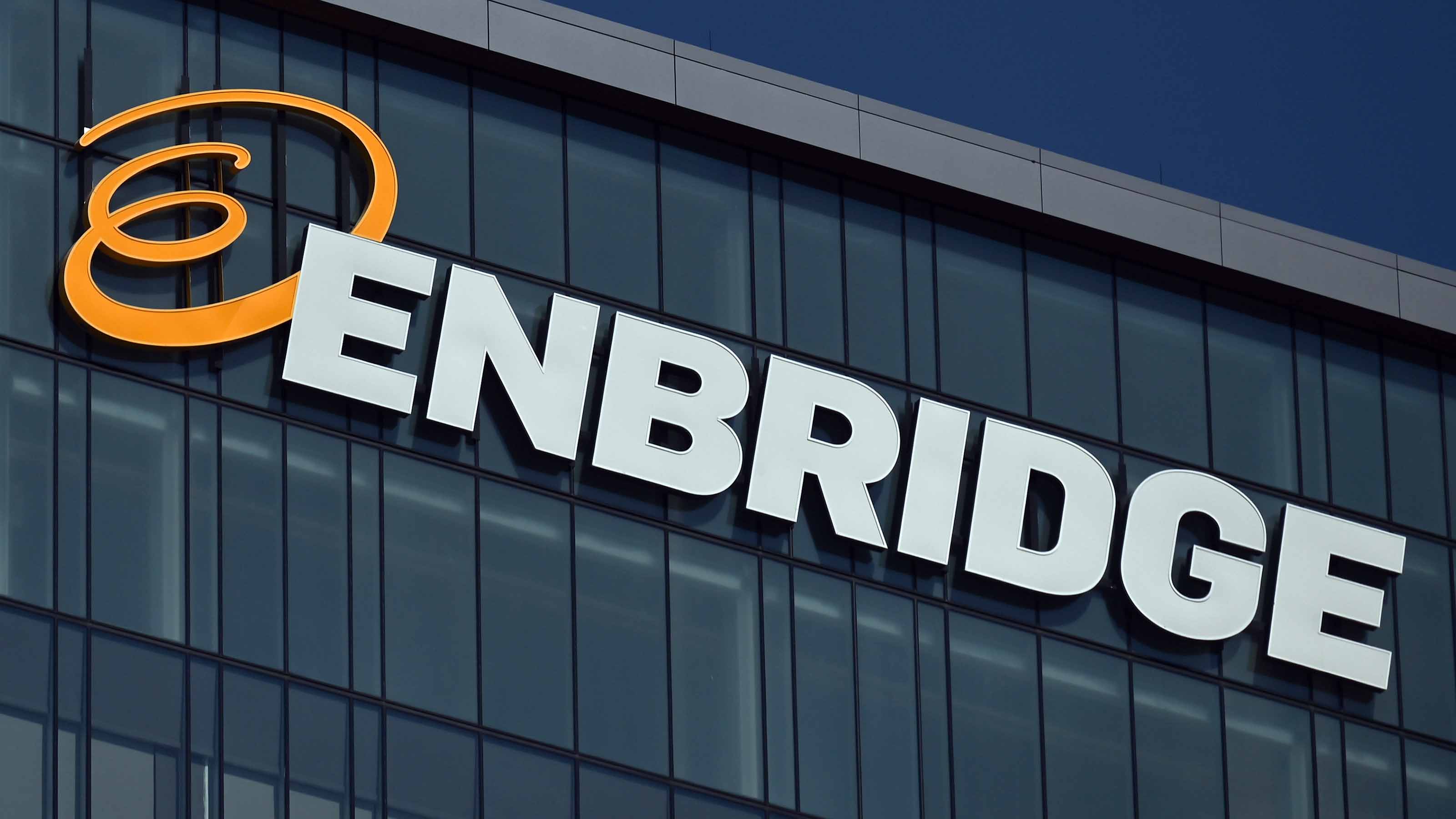
Enbridge
- Market value: $91.0 billion
- Dividend yield: 5.9%
- Consecutive annual dividend increases: 27
- Analysts' opinion: 7 Strong Buy, 6 Buy, 10 Hold, 0 Sell, 0 Strong Sell
Enbridge (ENB, $44.89) is a leading North American energy infrastructure company. It has five operating segments: Liquids Pipelines; Gas Transmission and Midstream; Gas Distribution and Storage; Renewable Power Generation; and Energy Services.
The company's pipeline business transports 25% of North America's oil. Its gas transmission business is responsible for transporting 20% of the natural gas in the U.S. through its pipelines; its natural gas distribution business is the largest utility of its kind based on annual deliveries, and its renewable energy segment generates approximately 2,178 megawatts of net renewable power in North America and Europe.
Enbridge's total revenue in 2021 was C$47.1 billion, 20.4% higher than in 2020. Revenues were higher across all of its operating units. The company's overall EBITDA rose by 5.3% to C$14.0 billion.
Over the past 27 years of increases, Enbridge has grown its annual dividend 10% on a compounded basis, putting it among the top Canadian dividend stocks in that respect. With its March 1 quarterly payment, investors now receive 86.0 Canadian cents per share.
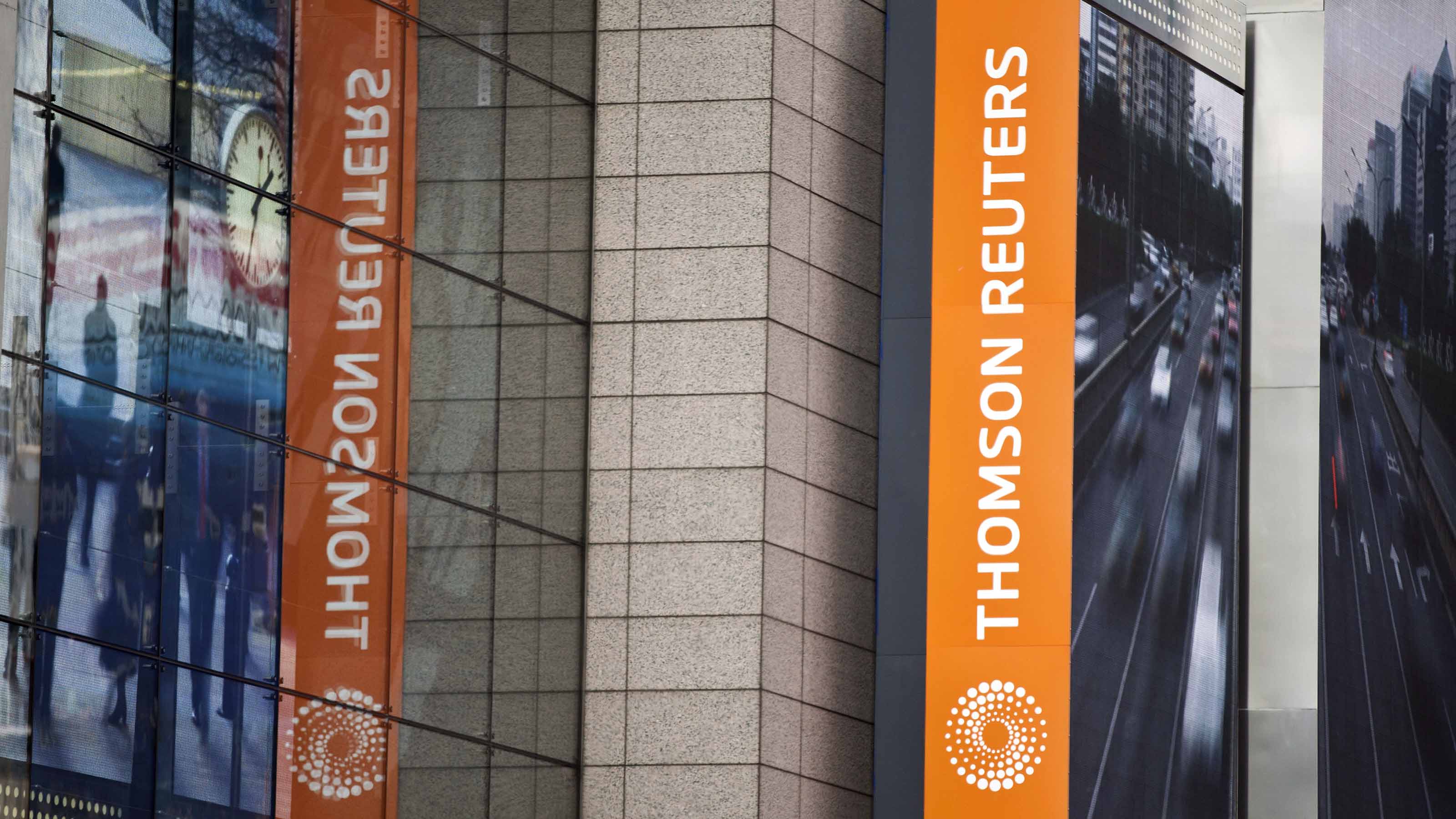
Thomson Reuters
- Market value: $47.1 billion
- Dividend yield: 1.8%
- Consecutive annual dividend increases: 29
- Analysts' opinion: 3 Strong Buy, 5 Buy, 7 Hold, 0 Sell, 1 Strong Sell
Thomson Reuters (TRI, $96.67) is a business information service provider for legal, tax, accounting and compliance professionals. It also owns Reuters news service.
On Jan. 29, 2021, Refinitiv was sold to the London Stock Exchange Group (LSEG) in an all-stock transaction. Through a jointly owned entity, Thomson Reuters indirectly holds 72.4 million shares in LSEG worth $7.0 billion as of Feb. 7, 2022. Last year, TRI received $75 million from this minority investment.
In 2021, Thomson Reuters reported $6.3 billion in revenue, 6% higher than in 2020, excluding currency. Its adjusted earnings per share rose 5% year-over-year to $1.95. Free cash flow decreased by 6% to $1.26 billion.
In February, Thomson Reuters increased its annual dividend by 16 cents to $1.78 a share, the company's 29th consecutive year increasing it. At the same time, the company announced that it repurchased $1.2 billion of its shares under its normal course issuer bid at the start of 2021. It returned a total of $2.2 billion to shareholders in 2021.

Fortis
- Market value: $23.5 billion
- Dividend yield: 3.4%
- Consecutive annual dividend increases: 48
- Analysts' opinion: 1 Strong Buy, 1 Buy, 12 Hold, 2 Sell, 1 Strong Sell
Fortis (FTS, $49.25) owns 10 utility operations in Canada, U.S. and the Caribbean, providing gas and electricity to more than 3.4 million customers. It is one of the top 15 utilities in North America. And its asset base has grown from $390 million at its incorporation in 1987 to $58 billion today.
The company gets 99% of its earnings from regulated utilities, which means those profits are relatively stable and benefit from steady rate increases. It's easy to see why Fortis is one of the best Canadian dividend stocks, having been able to increase its annual dividend for 48 straight years.
Fortis expects to spend C$20.0 billion on its five-year capital plan through 2026. In 2021, it invested C$3.6 billion in its system, increasing its rate base by 2% to C$31.1 billion. Its capital plan over the next five years will increase its rate base by approximately 34%.
FTS is tops among Canadian Dividend Aristocrats, boasting nearly a half-century of uninterrupted payout growth. Over the past five years, Fortis's dividend payout ratio has averaged 65.9%, ensuring it's not stretching to make its payments. In 2021, it was 78.5%. It plans to improve its annual dividend by 6% through 2025.
Profit and prosper with the best of Kiplinger's advice on investing, taxes, retirement, personal finance and much more. Delivered daily. Enter your email in the box and click Sign Me Up.

Will has written professionally for investment and finance publications in both the U.S. and Canada since 2004. A native of Toronto, Canada, his sole objective is to help people become better and more informed investors. Fascinated by how companies make money, he's a keen student of business history. Married and now living in Halifax, Nova Scotia, he's also got an interest in equity and debt crowdfunding.
-
 The Cost of Leaving Your Money in a Low-Rate Account
The Cost of Leaving Your Money in a Low-Rate AccountWhy parking your cash in low-yield accounts could be costing you, and smarter alternatives that preserve liquidity while boosting returns.
-
 I want to sell our beach house to retire now, but my wife wants to keep it.
I want to sell our beach house to retire now, but my wife wants to keep it.I want to sell the $610K vacation home and retire now, but my wife envisions a beach retirement in 8 years. We asked financial advisers to weigh in.
-
 How to Add a Pet Trust to Your Estate Plan
How to Add a Pet Trust to Your Estate PlanAdding a pet trust to your estate plan can ensure your pets are properly looked after when you're no longer able to care for them. This is how to go about it.
-
 Nasdaq Slides 1.4% on Big Tech Questions: Stock Market Today
Nasdaq Slides 1.4% on Big Tech Questions: Stock Market TodayPalantir Technologies proves at least one publicly traded company can spend a lot of money on AI and make a lot of money on AI.
-
 Fed Vibes Lift Stocks, Dow Up 515 Points: Stock Market Today
Fed Vibes Lift Stocks, Dow Up 515 Points: Stock Market TodayIncoming economic data, including the January jobs report, has been delayed again by another federal government shutdown.
-
 Stocks Close Down as Gold, Silver Spiral: Stock Market Today
Stocks Close Down as Gold, Silver Spiral: Stock Market TodayA "long-overdue correction" temporarily halted a massive rally in gold and silver, while the Dow took a hit from negative reactions to blue-chip earnings.
-
 Nasdaq Drops 172 Points on MSFT AI Spend: Stock Market Today
Nasdaq Drops 172 Points on MSFT AI Spend: Stock Market TodayMicrosoft, Meta Platforms and a mid-cap energy stock have a lot to say about the state of the AI revolution today.
-
 S&P 500 Tops 7,000, Fed Pauses Rate Cuts: Stock Market Today
S&P 500 Tops 7,000, Fed Pauses Rate Cuts: Stock Market TodayInvestors, traders and speculators will probably have to wait until after Jerome Powell steps down for the next Fed rate cut.
-
 S&P 500 Hits New High Before Big Tech Earnings, Fed: Stock Market Today
S&P 500 Hits New High Before Big Tech Earnings, Fed: Stock Market TodayThe tech-heavy Nasdaq also shone in Tuesday's session, while UnitedHealth dragged on the blue-chip Dow Jones Industrial Average.
-
 Dow Rises 313 Points to Begin a Big Week: Stock Market Today
Dow Rises 313 Points to Begin a Big Week: Stock Market TodayThe S&P 500 is within 50 points of crossing 7,000 for the first time, and Papa Dow is lurking just below its own new all-time high.
-
 Nasdaq Leads Ahead of Big Tech Earnings: Stock Market Today
Nasdaq Leads Ahead of Big Tech Earnings: Stock Market TodayPresident Donald Trump is making markets move based on personal and political as well as financial and economic priorities.
